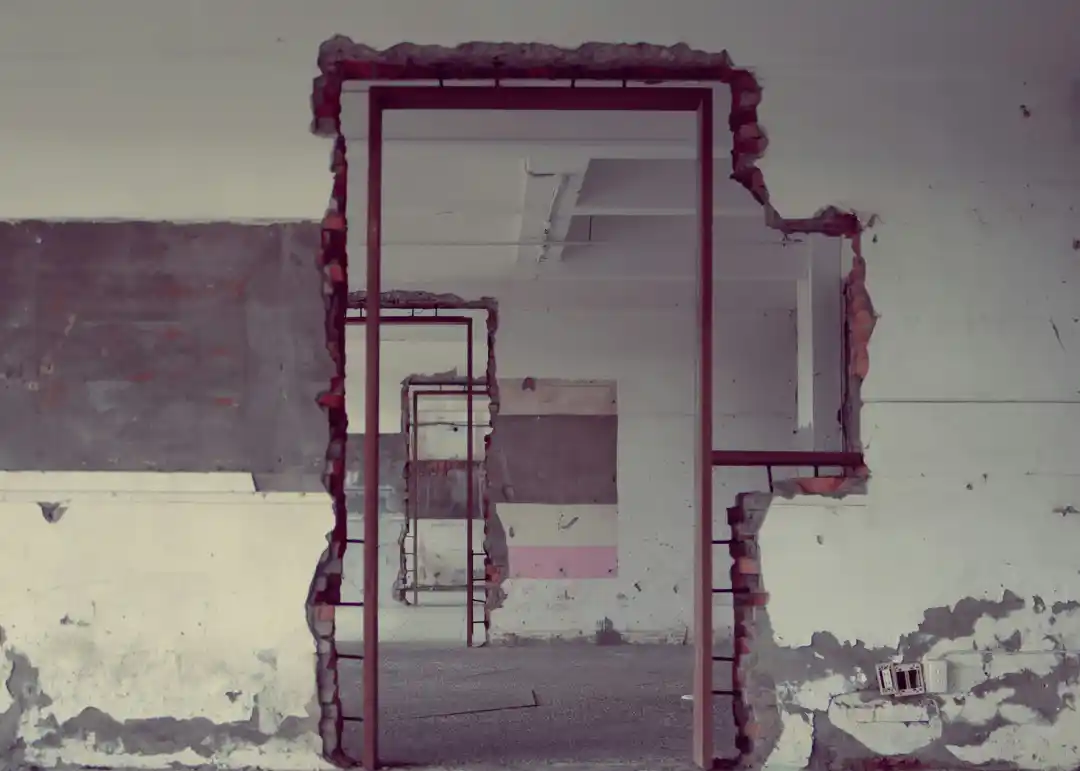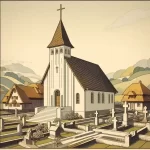It took about half an hour of walk through winding paths in the thick deciduous forest, still blanketed by fog of early winter morning, for Mr Sahai to arrive at the derelict school from his humble lodging. The day was just a usual one in his life as a teacher in the far-flung tribal region of northern Chhattisgarh, except things had changed beyond his own imagination since last summer. Mr Sahai walked solemnly through the well-trodden paths that curved, inclined, tapered, and broadened on their own free will and were barely visible in the fog. A side bag slung over his shoulder and in it, he carried his pens, chalks, a duster, a few books and a personal diary. He had wrapped a scarf around his head that securely covered his ears from the biting wind, but the old sleeveless woollen sweater that he had worn over his torso was scarcely doing its job. The top-cap of his left shoe had worn out, exposing a little bit of his toes. On his way, he met a few ill-clad tribals and they all seemed to look at his weather-beaten face and athletic body with bewilderment and pity until he vanished in the cloud of fog.

Now Mr Sahai was standing before the primary school which was constructed a few years back when the government had somehow realised that tribals, neglected and obscured for ages, were also entitled to their share of education, empowerment and jobs. He stood for long on the small playground of the school, observing and meditating. From where he stood on the playground, Mr Sahai could see eerie ambience inside the classrooms through the ruined walls, doors and windows. The acrylic wall paintings of great personages had chipped on the walls that still somehow managed to stand, and on those that were busted could still be seen a section of their memorable faces. The forest had begun to extend its claws in and around the school with profuse growth of bushes.
Mr Sahai came everyday to the school at his regular time and sat on a chair in one of the dilapidated classrooms filled with broken concrete, dust, cobwebs and hopelessness. After a long spell of stupor, he brought out the books from his bag and started reading out texts from one of them to a vacant classroom, explaining every line meticulously. Often, he stood in the middle of his lecture and drew diagrams and figures on the blackboard. A thick layer of chalk powder had gathered on the edge of the wall below the board. He could see bullets stuck in the damaged walls alongside the charts that he had persuaded the rustic Gondi children to make. Dust and cobwebs enveloped everything in the room. The place on the table where he put his bag and the circular region of the chair where he sat appeared clean within the circumference, providing the only sign of human presence and movement after he was gone.
In solitude, he often stared at a slate pencil and a torn piece of page from some textbook lying on the floor among debris of concrete. In the beginning, his former students who were dressed mostly only in shorts often came close to the school and found it eccentric to see him sitting in the classroom and teaching to a vacant classroom. They dared not face his eyes, so they hid themselves behind windowsill, door or wall and witnessed him deliver his lecture with the same passion as once he did when they were literally in his class. The pupils at first thought he was a lunatic or a phantom and ran away. Mr Sahai had become a Jekyll and Hyde for them; he appeared like an evil spirit when he was alone in the classroom and an affable person when they saw him walking between his lodging and school. Later, out of curiosity or for sheer fun, they came back in groups, found him harmless, and some even developed a fondness for this mystifying person. However, none of them could muster enough courage to face the man, let alone initiate a conversation with him.
The students in the coed school belonged to a set of tribal communities that thrived on immensely mineral-rich soil and forest products, and to whom even a speck of modernity had yet not touched. His pupils were barbaric and undisciplined in the sense that he repented his decision and applied for transfer twice. He even sometimes considered the option of resignation. Nevertheless, as months went by, he closely noticed the innocence and ignorance of the kids and realised his sacred obligation as a teacher to enlighten them, to make them suitable for a brighter future far from this wilderness. The pupils also developed a sort of reverence for Mr Sahai who told them enthralling stories, anecdotes and about trains, computers, planes and such other wonders. Whenever they bumped into him on their way to some errands or during ramblings in the sleeping forest, they greeted him with folded hands, looking at him with much awe and apprehension.
In a region like this where witchcraft is a part of life and so casual, no one bothered about Mr Sahai or thought it was uncanny or even perilous to come to the school every day like that. Tribals had myriad stories of supernatural powers overtaking one’s senses, demons, bad omens and such. For them even a humble mahua tree acquired the grace and supremacy of God and they termed it a Kalpavriksha – a divine wish-fulfilling tree. Moreover, the other school staff stayed away from the school, waiting for the government to commence repair works and create a sense of security among the locals.
The only sound heard in and around the school was the rustling of leaves in the winter breeze, intercepted by chattering of squirrels and chirping of birds. Mr Sahai sank in profound thoughts and repeatedly recreated the grim happenings that had rendered his school derelict. Some seven months back, Salwa Judum, a militia formed to fight insurgency in the region, had occupied the school and used it as barracks. The classes were still conducted but the presence of security forces created fear in children and their parents alike, and many of them left coming to school for safety against potential conflict between Maoists and the security forces. After a month of occupancy of the school by the anti-insurgency forces, Maoists had set off can-bombs and fired inside the school. Since then, everyone deserted the school and only Mr Sahai seemed to care enough to come and pay homage to his workplace every working day.
He was thirty and unmarried, much to the annoyance of his family who had not only opposed his resolution to take the post in the unsafe region but also pressed him to marry and settle in his own village from where Maoists had moved out completely a few years back. Now that was a forgotten past and he rarely reflected how his life would have been if he had concurred to their terms. For Mr Sahai, imparting education to the gullible and gifted children was his sacred duty and he thought one day, the pupils would flock to the school with their smiles and curious minds and once again, he would tell them about satellites, celestial bodies and such wonders. The diary in which he often wrote his musings and the topics that he had to teach was almost filled up now, as it was the last week of December. He would soon need to purchase a new one. Once in a month, he took a twenty kilometres long bus journey to reach the nearest bazaar and buy all his supplies. Two years ago, he had deliberately chosen this sparsely populated forest region inhabited by Gonds and other tribes to work as a primary teacher in a government school. And now when everyone had left, he still did his duty.
At the ringing of an imaginary bell, Mr Sahai calmly got up from his chair and put all his belongings in the side-bag. He sighed and emerged from the classroom with contentment sparkling on his face. He had done his part. Let the world do theirs. He sauntered back towards his lodging through the same paths, now brightened in the afternoon light and enlivened with people and creatures. He would remain a normal human being until the next morning.
*
Dinesh J Maurya is the author of eleven general reference books and a novella ‘ Mama Martyr, Papa Peace’. He is currently working on his first novel. He divides his time between teaching and writing.








Leave a Reply